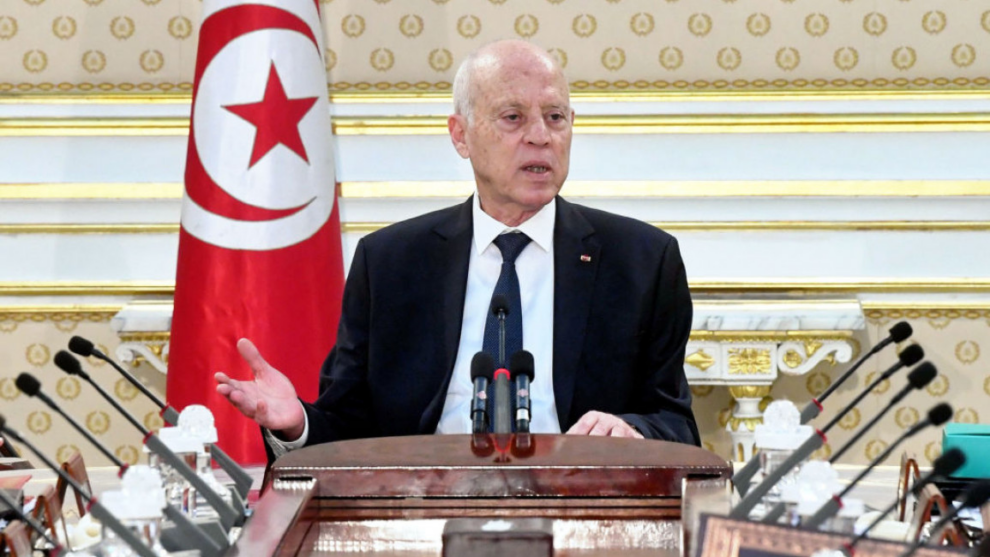The various factions of the opposition are reportedly moving to boycott the upcoming elections, which many consider to be a continuation of Saied’s attempts to strengthen his one-man rule.
Tunisia will hold its first local elections under President Saied’s new constitution despite the opposition’s growing calls for a boycott.
“An order will be issued to invite voters to the elections on December 24th,” said Saied in a meeting with his cabinet on Thursday, 21 September.
“If no candidate obtains an absolute majority in the first round, a second round will be held, in which only the first and second candidates who obtained the majority of votes in the first round will advance,” he added.
The local elections were expected to be held on 17 December, according to what the head of the Independent High Electoral Commission, Farouk Bouaskar, announced on 10 September.
However, President Saied has decided to push the election to a week later to have “a symbolic meaning.”
This 24 December marks the 13th anniversary of the death of young activists Muhammad Al-Amari and Shawqi Al-Haidari during the events of the Tunisian revolution that overthrew former dictator Zine El Abidine Ben Ali.
Tunisia local elections
In Tunisia, the legislative function is divided into two chambers: the House of People’s Representatives, which started its work last March, minus eight representatives whose vacant positions have not been filled to date, and the second chamber, the Council of Regions and provinces.
The 2022 Constitution gives regional assemblies the prerogative to elect National Council of Regions and Districts members. For this purpose, it creates intermediate assemblies, local assemblies, whose members draw lots from among themselves to represent them in regional assemblies. The members of the regional assemblies then elect the upper house members.
The upcoming elections will be held for the first time in 2,155 electoral districts, compared to the municipal elections in 350 districts in 2018, which will require important logistical and human preparations.
“Projects related to the state budget and regional, regional, and national development plans must be submitted to the National Council of Regions and Provinces to ensure a balance between regions and provinces,” read Tunisia’s new constitution, which Saied wrote himself and passed last year in a referendum with a low turnout.
Opposition seeks to boycott the election
The various factions of the opposition are reportedly moving to boycott the upcoming elections, which many consider to be a continuation of Saied’s attempts to strengthen his one-man rule.
“Politically, we cannot hold elections while we are in a state of general reluctance to the political process,” Osama Oweidat, spokesperson for the Party of People’s Movement, told Al-Araby Al-Jadeed. Party of People’s Movement, which supported Saied’s rule by decree in 2021, said the elections have to be postponed until social and political confidence is restored in the state.
Saied has concentrated nearly all powers in the presidency since he suddenly shut down the elected parliament in July 2021 and moved to rule by decree, moves that opposition parties have called an undemocratic coup.
Most political parties boycotted elections in December and January for a new, primarily powerless, parliament, which is perceived as an extension of Saied’s coup.
The president has rejected that accusation, saying his moves were legal and necessary to save Tunisia from years of chaos at the hands of a corrupt, self-serving political elite.
Source : NEWARAB

















Add Comment